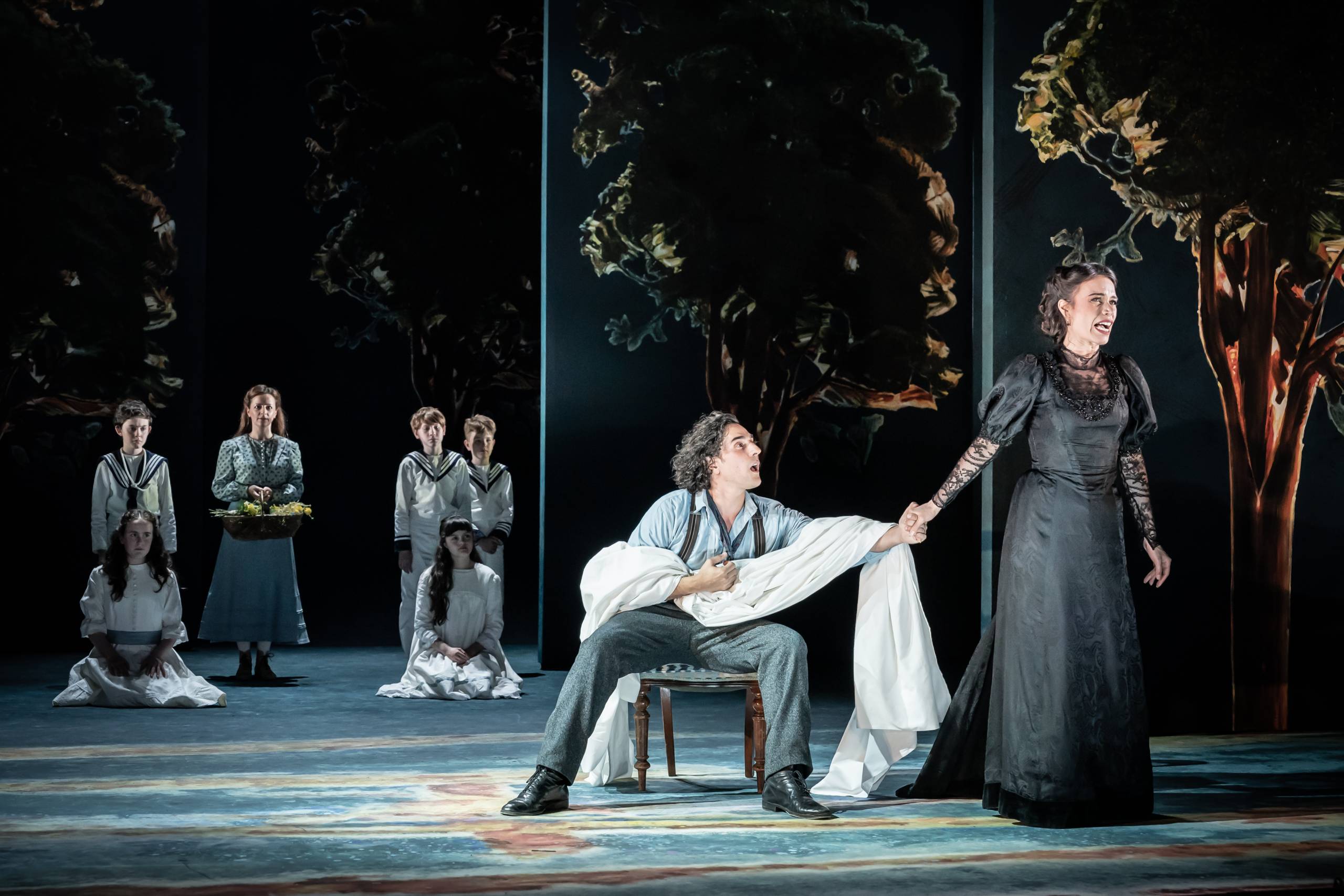
****
John Doyle’s stark yet still beautiful staging of Massenet’s Werther continued what seems a probably unintended season of productions where the soprano dominates even if, as here, a man has the title role.
The Gascoigne Orchestra conducted by Christopher Hopkins, sweeping along with the intense score, makes full affect with Massenet’s grand climatic moments. The production is strongly cast with Ginger Costa-Jackson and Leonardo Capalbo as Charlotte and Werther, Dominic Sedgwick as Albert and Iria Perestrelo as Sophie.
There is certainly no lack of power and strength in the singing of this piece of Romantic pathos and the players all looked their part from the dashing poet Werther, the stable Albert, the self-controlled Charlotte, and the charming young sister Sophie.

Dominic Sedgwick and Ginger Costa-Jackson
However, the rather dashing Capalbo as Werther, is more a happy chap who delights in his surroundings and is full of the joys of spring (well summer) than an intense away-with-the-Muses artist. Yes, he transforms into despair when rejected by Charlotte but there seems little variation in the gusto and sheer oomph of his vocal prowess until the white sheet of death slowly takes him. The contrast with sensible Albert is evident although he sings with such charm and looks so handsome and suave I am not convinced Charlotte has not made the right choice.
Charlotte is, yes, pious and a good egg, a sort of Maria to the Von Trapp children in their little nautical outfits designed by Gabrielle Dalton, but her gorgeous mezzo always hints at fire beneath that surface, bursting into flame in the celebrated letter scene and the denouement. Like the Isolde in the festival’s wonderful Wagner offering, this is also a woman full of passion but somewhat more bottled up! Maybe some love potion rather than poetry would have helped.
Sedgwick is vocally and visually rather appealing Albert, while Perestrelo plays Sophie as possibly not the totally naïve little innocent. Alan Ewing makes much of the role of Le Bailli.
The direction is simple in making the characters exist on two planes: one of play and love, the other duty and control. This is manifested in them entering and leaving the stage as if automatons on a track when their time of freedom and joy has come to an end.

Ginger Costa-Jackson and Leonardo Capalbo
The children and Sophie in particular are also players beyond singing by being the conveyors of the props and furniture, and even the guns that will end Werther’s life. Perhaps they are all stages of growing up and their carefree youth will be controlled and extinguished.
The set is a simple set of large, stylised tree-painted panels, with golden sunshine seemingly behind each one, which slowly closes the space as convention shuts down the young lives.
Passionate and gloriously sung but perhaps lacking in some of the dream-like, soulfulness of a lost Romantic poet.
The idyllic country location may be the place for dreaming but it needed more soul.
Until July 12.
https://grangeparkopera.co.uk/whats-on/werther/
Images Marc Brenner